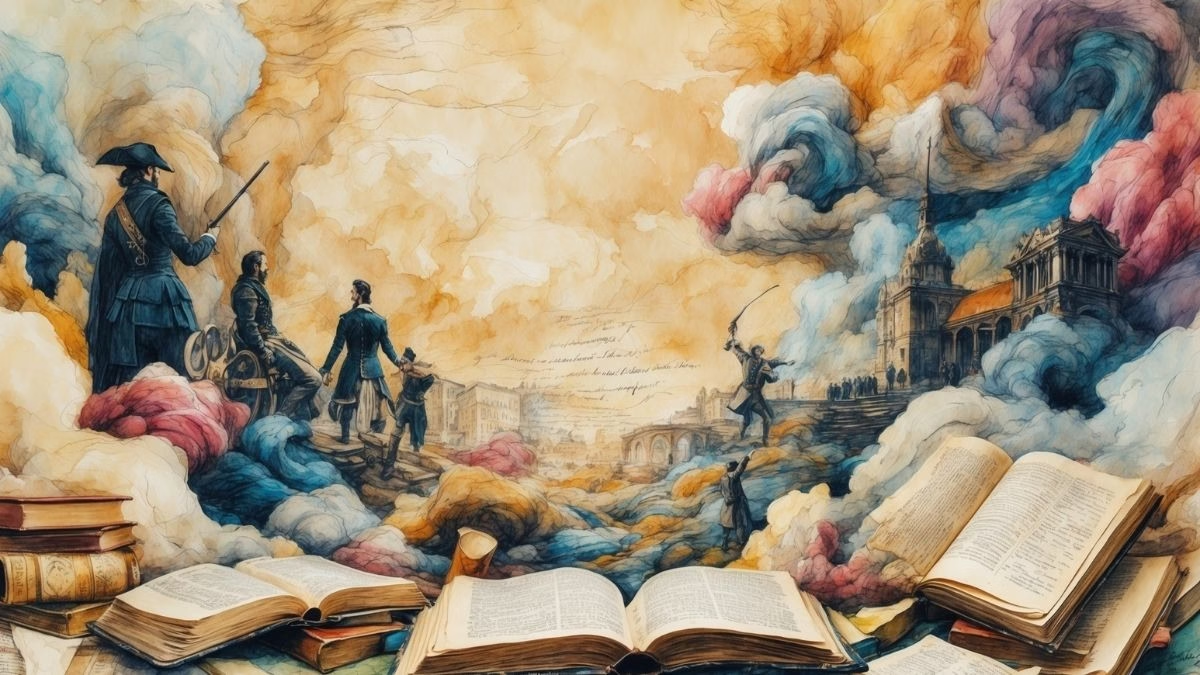Reading History Through Fiction: A New Perspective
Get ready to enhance your analytical skills! This reading passage explores a fascinating topic often featured in higher-level academic texts: how literature provides a unique “lens” for viewing history. For international exams, it’s vital to be able to read beyond the surface facts and understand an author’s argument, tone, and use of evidence.
Strategies for Analytical Reading:
- Distinguish Fact from Interpretation: The text will discuss both historical events (facts) and literary interpretations of those events. Your job is to understand how the author connects them. Note where the author moves from describing history to analyzing fiction.
- Analyze the Author’s Examples: The author will use specific books or stories as examples. Ask yourself: Why this example? What point is the author trying to prove with it? Understanding the function of examples is key.
- Focus on Tone and Nuance: Pay close attention to the author’s choice of words. Words like “merely,” “profoundly,” or “uniquely” can reveal the author’s attitude and strengthen their argument.
Time Management:
Challenge yourself to read the passage and complete the 10-question quiz in 18-20 minutes. This will help build the mental stamina and speed you need for test day. Let’s dive in.
Beyond the Dates: Viewing Historical Events Through Literary Lenses
History, as a discipline, traditionally concerns itself with facts, chronologies, and the verifiable actions of societies and their leaders. A historical account of a war, for instance, might meticulously detail troop movements, casualty counts, and the political treaties that concluded the conflict. Literature, however, offers a profoundly different, and arguably more resonant, mode of understanding the past. By employing narrative techniques such as interior monologue, symbolism, and character development, historical fiction can provide a window into the subjective, human experience of an era, a perspective that empirical data alone cannot furnish. It presents not just what happened, but what it felt like for those who lived it.
Consider the French Revolution. A textbook can explain the economic and philosophical causes, chart the major events from the storming of the Bastille to the Reign of Terror, and analyze its political aftermath. Charles Dickens’s A Tale of Two Cities, in contrast, explores the era’s turbulent atmosphere through the juxtaposed lives of its characters in London and Paris. The novel doesn’t seek to provide a comprehensive historical record; rather, its purpose is didactic and emotional. It uses the grand, impersonal forces of history as a backdrop to explore themes of sacrifice, justice, and societal chaos on a deeply personal level, thereby creating a powerful, human-centered verisimilitude that a purely factual account might lack.
This literary approach is not without its perils and criticisms. Purists may argue that historical fiction, by its very nature, is a distortion of the past, blending fact with invention. An author might create composite characters or manipulate timelines for dramatic effect, potentially misleading the incautious reader. Furthermore, the selection of a particular narrative viewpoint inherently privileges one experience over others. A novel focusing on the aristocracy during the Russian Revolution, for example, will offer a starkly different interpretation of events than one told from the perspective of a Bolshevik revolutionary. The literary lens is, therefore, never truly objective; it is a curated, and often biased, glimpse into a historical moment.
Despite this subjectivity, the value of literature as a historical lens is undeniable. It serves as a powerful form of collective memory and empathy. Tim O’Brien’s The Things They Carried, a collection of short stories about the Vietnam War, blurs the line between fiction and memoir to convey the psychological burdens and moral ambiguities faced by soldiers. O’Brien himself calls it “story-truth,” distinct from “happening-truth.” He argues that the emotional core of the experience can sometimes be more accurately conveyed through fiction than through a mere recitation of facts. By immersing readers in the sensory and emotional reality of the past, literature transforms history from a remote collection of data into a living, breathing experience, fostering a more nuanced and empathetic understanding of the human condition across time.
Reading Comprehension Quiz
Key Vocabulary & Phrases
- Resonant: This means having the ability to evoke enduring images, memories, or emotions. We said literature offers a more “resonant” mode of understanding because it connects with our feelings more deeply than facts alone.
- Subjective: This describes something that is based on or influenced by personal feelings, tastes, or opinions. A literary perspective is “subjective” because it’s told from a particular character’s point of view.
- Empirical: This refers to something that is based on observation or experience rather than theory or pure logic. “Empirical data,” like casualty counts, is verifiable and factual.
- Furnish: In an academic context, this verb means to provide or supply something. We wrote that data alone cannot “furnish” (provide) a certain perspective.
- Juxtaposed: To juxtapose things is to place them close together for contrasting effect. Dickens “juxtaposed” the lives of characters in London and Paris to highlight the different social atmospheres.
- Didactic: This adjective describes something that is intended to teach, particularly in having a moral lesson as an ulterior motive. A Tale of Two Cities is described as having a “didactic” purpose.
- Verisimilitude: This is a fantastic word that means the appearance of being true or real. Historical fiction aims for emotional “verisimilitude,” making you feel like you’re really there.
- Purists: A purist is someone who insists on absolute adherence to traditional rules or structures. In the text, “purists” are those who might object to the blending of fact and fiction.
- Inherently: This means existing in something as a permanent, essential, or characteristic attribute. A literary lens is “inherently” subjective, meaning subjectivity is a built-in part of it.
- Nuanced: Characterized by subtle shades of meaning or expression. Literature can foster a more “nuanced” understanding of history by showing its complexities and ambiguities rather than just black-and-white facts.










0 Comments